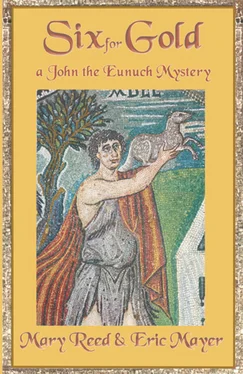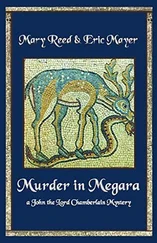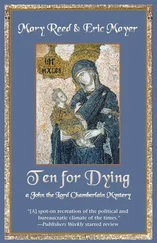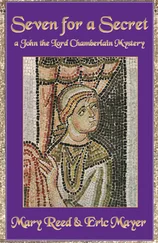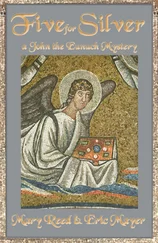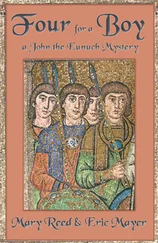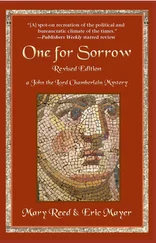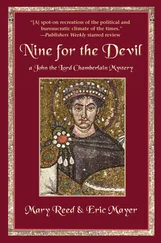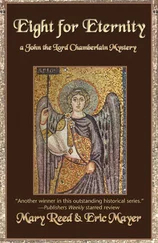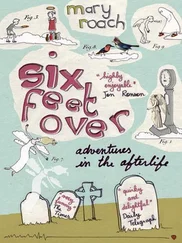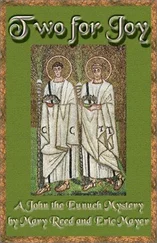Mary Reed - Six for Gold
Здесь есть возможность читать онлайн «Mary Reed - Six for Gold» весь текст электронной книги совершенно бесплатно (целиком полную версию без сокращений). В некоторых случаях можно слушать аудио, скачать через торрент в формате fb2 и присутствует краткое содержание. Год выпуска: 2011, ISBN: 2011, Издательство: Poisoned Pen Press, Жанр: Исторический детектив, на английском языке. Описание произведения, (предисловие) а так же отзывы посетителей доступны на портале библиотеки ЛибКат.
- Название:Six for Gold
- Автор:
- Издательство:Poisoned Pen Press
- Жанр:
- Год:2011
- ISBN:9781615951741
- Рейтинг книги:5 / 5. Голосов: 1
-
Избранное:Добавить в избранное
- Отзывы:
-
Ваша оценка:
- 100
- 1
- 2
- 3
- 4
- 5
Six for Gold: краткое содержание, описание и аннотация
Предлагаем к чтению аннотацию, описание, краткое содержание или предисловие (зависит от того, что написал сам автор книги «Six for Gold»). Если вы не нашли необходимую информацию о книге — напишите в комментариях, мы постараемся отыскать её.
Six for Gold — читать онлайн бесплатно полную книгу (весь текст) целиком
Ниже представлен текст книги, разбитый по страницам. Система сохранения места последней прочитанной страницы, позволяет с удобством читать онлайн бесплатно книгу «Six for Gold», без необходимости каждый раз заново искать на чём Вы остановились. Поставьте закладку, и сможете в любой момент перейти на страницу, на которой закончили чтение.
Интервал:
Закладка:
The uneven walls, some bulging slightly outwards while others curved inwards, made the unseen rooms he had traversed all the more disconcerting.
He stood, unsteadily. His throat worked spasmodically and painfully.
He ran his palm along the nearest wall.
There was something different about it.
The wall did not so much bulge here and there as curve along its entire length.
Noticeably.
What did it mean? That was the problem to be solved. A riddle, almost a game.
Like Zebulon’s game of Mehen.
No, John thought, Mehen’s maze was exactly the same as Zebulon’s board. It was hewn out in the shape of a coiled snake.
Why not? Wasn’t the shrine of which the maze formed a part dedicated to Mehen?
Despite the confusion of doorways, the path to the center, like the path to the center of Zebulon’s board, wound continuously inward.
The trick was to move inward without deviating.
He was certain of it.
And once he got to the heart of the maze he could easily work his way back out.
John trailed his fingers along the wall until he reached a doorway and stepped into the next room.
Working his way around he found the wall on the far side from the entrance seemed more curved than that in the room he had just left.
If he was not moving toward the center, he reasoned, he would soon reach a dead end.
Then he would simply try another direction.
He felt his way through the opening to the next room. Again he placed his left hand on the wall to the left of the doorway, followed it carefully around two corner angles and located the next doorway.
There was no way to measure the passage of time.
Occasionally John stopped to rest. He could feel his heart pounding. It wasn’t from exertion, but rather that the darkness pressing in from all sides, blinding his eyes, blotting out the world, was too like his dreams of drowning.
More than once it occurred to him that he could be wrong about the shape of the maze. He might simply be wandering deeper into abandoned catacombs far away from the chamber that pious pilgrims sought.
Yet it now seemed as if the curvature of the walls was increasing and the rooms less wide.
Soon he was certain of it.
He must be fast approaching the heart of the maze and whatever lay there.
He sought the next opening.
And found a door.
He pushed it open and could see again.
Ahead lay a long, narrow hallway with light at the far end.
Several strides took him around a corner, under an archway, and into a chamber whose fitful lamplight had spilt out into the corridor.
He had arrived at a circular room.
Clay lamps, arrayed on the floor along the foot of its uneven walls, cast shadows into a dome crudely chiseled from the native rock. Light danced on a tall pole topped by a horizontal cross piece displayed on a low wooden pedestal set against the wall opposite the archway.
A serpent, thicker than John’s leg, climbed around the pole, its glittering coils moving ceaselessly.
John realized the reptile’s apparent motion was an illusion created by the flickering lamps, for the upper part of the snake’s body and its head rested on the horizontal bar and their position remained unchanged.
Now he saw the truth of it.
The artifact Thomas had been given in Constantinople was not a cross with the top and the figure of the Christian’s gentle god broken from it.
Clearly it was a reproduction of this effigy-one from which the serpent had been detached.
This then must be the thing Justinian’s enemies sought.
A representation of an ancient god.
Dedi claimed to derive power from it, but he was a charlatan, wasn’t he? The cures the pilgrims sought were empty promises, weren’t they?
John looked up at the serpent.
It had been fashioned of copper. The black pits of its eyes fastened on him.
John suddenly felt cold. There was some quality beyond mere darkness in the shadows of those eyes. It was as if a hole had been punched through the brightly frescoed wall of reality to reveal a void beyond the world.
He reached up and touched the snake’s glittering coils.
There was a faint crackle and the tip of his forefinger felt as if it had been stung by one of Apollo’s bees.
It must have been his imagination.
He laid his hand against the serpent.
It felt warm.
No doubt warmth from the lamps had heated the metal from which it was constructed.
There was no doubt if any pilgrims reached this circular sanctum they would be suitably impressed and overawed, yet how could the strange artifact triumph against imperial troops or aid a plot against Justinian?
John looked behind the pedestal on which the idol stood and found what he had expected.
A wooden trapdoor.
No doubt the tunnel below led back to Dedi’s dwelling.
The lamps guttered and smoke swirled. A figure stepped into the chamber.
It was Peter.
“Master! I…I made my way through the maze by faith, it seems…”
Peter’s words trailed off as he saw the effigy. He fell to his knees, sketching a cross with a trembling hand.
His eyes glistened as he looked at John. His voice was a ragged whisper. “It is Nehushtan.”
“Nehushtan?”
“The brazen serpent, master. When the chosen people wandered in the wilderness the Lord sent fiery serpents among them. Moses prayed to Him and was commanded to make a serpent and display it upon a pole, so that whoever beheld the image would be healed. But when it came to be worshipped as an idol in the days of Hezekiah, it was destroyed. Except it was not destroyed, master, for here before us is Nehushtan itself.”
Chapter Forty-three
“I told Senator Symacchus I had a lot of experience when it came to relics,” Thomas grumbled, “and didn’t I end up with Nehushtan almost in my grasp? If only the senator had believed me-”
“There are safer ways to make a living than chasing after such things,” Europa interrupted. She gave her husband’s arm an affectionate squeeze.
She and Thomas were seated in John’s study in Constantinople, along with John, Anatolius, and Cornelia. The clang of pots accompanied by a hymn drifted down the hallway. Peter was reclaiming his kitchen.
They had talked for a long time, trying to piece together what they had learned separately.
“So really you were pursuing an investigation for the emperor, John.” Anatolius’ tone betrayed his irritation. “At least you returned from Mehenopolis more rapidly than you arrived there. I was afraid that before you got back Crispin would summon me to a meeting, and then what would I say?”
“I’m certain you’d have invented a reasonable story,” John said.
“Luckily I didn’t have to! Now, let’s see if we agree on what happened. Bishop Crispin learned of the existence of the relic in the maze from Senator Symacchus, who’d been trying to convert him to orthodoxy. Symacchus, who came to sympathize with the monophysites, had been told about it by his Egyptian guest, Melios.”
“I’ll ask Peter to show you the pilgrim flask Hapymen presented to him before we left,” John said. “It’s identical to one you described in the senator’s collection. According to Hapymen, the wavy line you thought was a river was intended to represent Mehen. No doubt the senator’s matching flask was given to him by Melios when he visited Constantinople.”
“So the monophysites, having learned of the relic, realized bringing the brazen serpent of Moses to Constantinople would demonstrate clearly to everyone that the Christian god was on their side of the theological dispute.”
Thomas guffawed. “Which, since they already had Theodora as their champion, would’ve forced Justinian to change his beliefs!”
Читать дальшеИнтервал:
Закладка:
Похожие книги на «Six for Gold»
Представляем Вашему вниманию похожие книги на «Six for Gold» списком для выбора. Мы отобрали схожую по названию и смыслу литературу в надежде предоставить читателям больше вариантов отыскать новые, интересные, ещё непрочитанные произведения.
Обсуждение, отзывы о книге «Six for Gold» и просто собственные мнения читателей. Оставьте ваши комментарии, напишите, что Вы думаете о произведении, его смысле или главных героях. Укажите что конкретно понравилось, а что нет, и почему Вы так считаете.
